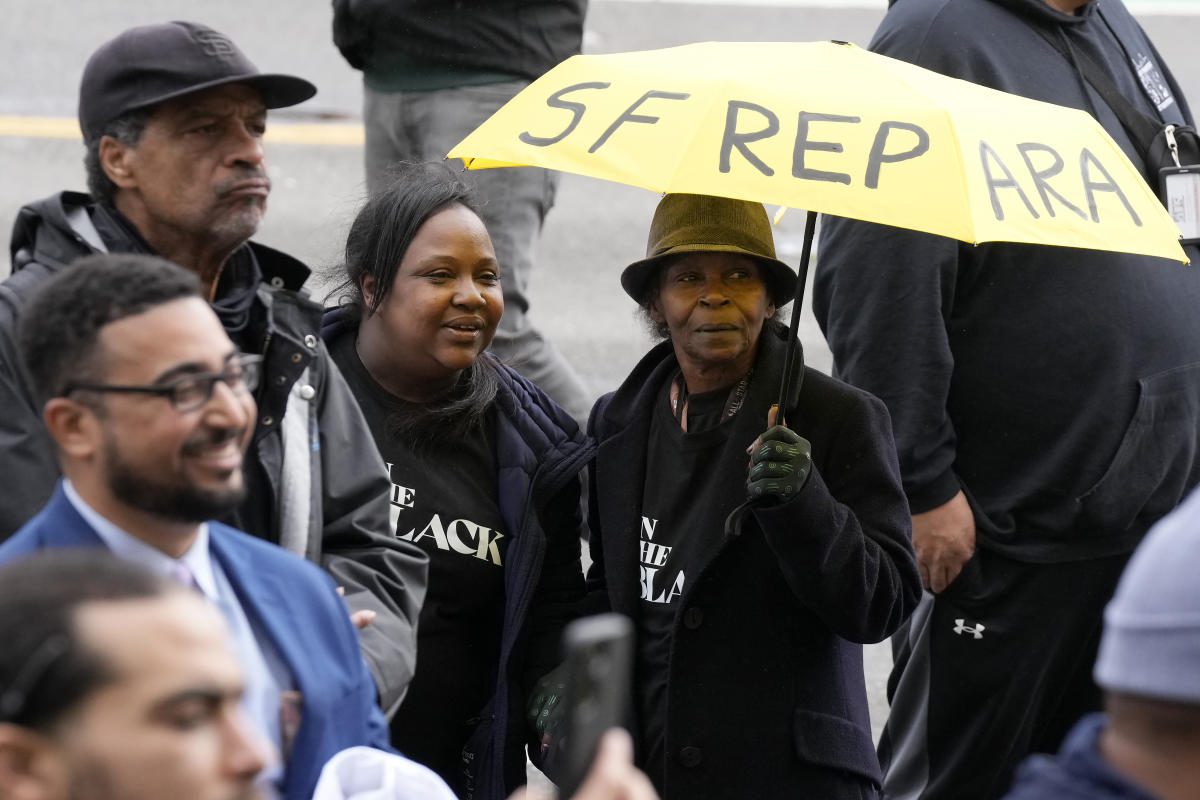Global Courant 2023-05-17 10:01:38
SACRAMENTO, Calif. (AP) — San Francisco resident Pia Harris is hoping for reparations in her lifetime. But the nonprofit’s program director isn’t confident California lawmakers will turn the recommendations of a first-in-the-nation task force into concrete law, given opposition from opponents who say slavery was a thing of the past.
Harris, 45, is frustrated that reparation opponents will not acknowledge that black people’s lives have not improved with the abolition of chattel slavery in 1865. Black families have been unable to accumulate wealth through property ownership. good and higher education. Black boys and teens are still told to beware of law enforcement, and black businesses struggle to get loans, she said.
“I want them to stop pretending it’s so far away and it’s not happening right now,” Harris said of the lingering effects of slavery and discrimination. “I want them to understand that we are still going through things now as a community. It’s not — it’s not over for us.
Black Californians have watched closely as the state’s reparations task force finally made progress in a two-year investigation unsubscribe this month on a hefty list of recommendations that will be presented to lawmakers. It’s uncertain what lawmakers will do with the proposalsincluding payments to descendants of enslaved people and a formal apology from the state.
The Associated Press interviewed a handful of black advocates and residents who followed the task force’s work — as well as those who have long been engaged in the reparations conversation. The civil rights activists and young entrepreneurs of the 1960s echoed a common fear: They hope that California’s exploration of reparations will not become another example of the government offering false hope.
Reparations proposals for African Americans date back to 1865, when Union General William Tecumseh Sherman ordered that newly freed people be given up to 16 acres of land. That didn’t happen. In recent decades, Democratic legislators in Congress have tried to pass legislation to study federal reparations, but to no avail.
Story continues
In 2020, California became the first state to approve the creation of a reparations task force – to study the state’s role in perpetuating systemic racism and find ways to atone. Although California joined the union as a “free” state, it did not enact any laws guaranteeing freedom for African Americans, according to a draft task force report.
The state facing a projected budget deficit of $31.5 billionnarrowing the possibility of legal support for some of the task force’s more ambitious recommendations, including direct payments to eligible residents and the creation of a new government agency to help those families research their ancestry and file claims.
The task force has not recommended specific payment amounts, but economist estimates say the state is responsible for more than $500 billion due to decades of overpolicing, mass incarceration and redlining that kept black families from buying homes in appreciative neighborhoods.
Damien Posey, 44, grew up in historically black neighborhoods in San Francisco, where he heard gunshots at night and was bussed to schools in neighborhoods not as welcoming to black children. He spent ten years in prison for a gun charge and later started a non-profit organization called Us 4 Us Bay Area to mentor youth and reduce gun violence.
Meaningful reparations include an official apology from the state, public funding for nonprofits helping black residents, and monetary reparations for any person eligible for the wages denied to their ancestors who built this country with their labor .
“And our people deserve it, frankly,” he said.
Compensation is an important part of state reparations proposals because black Americans have been “deprived of a lot of money” as a result of discriminatory policies, said Les Robinson, 66, an associate pastor at Sanctuary Foursquare Church in Santa Clarita, a city of about 30 years old. miles (48 kilometers) north of Los Angeles.
But money isn’t everything, Robinson said, and the task force’s other important work shouldn’t be lost in a fixation on dollar numbers alone. He pointed to attempts to retell California’s history through a different lens — one that examines the state’s role in perpetuating systemic racism, despite its label as a “free” state.
Robinson was “hit with a tsunami of emotions” when he learned in 2017 that he was descended from a man who founded California’s first black church and played a pivotal role in the state’s pioneering African-American community.
He was disappointed that more people—including himself—didn’t learn the story of Daniel Blue, his great-great-grandfather who created what is now known as the historic Saint Andrews African Methodist Episcopal Church in Sacramento.
Robinson is skeptical that reparations will be approved by lawmakers, if history is any indicator.
“People wonder why African Americans are angry in general,” he said. “Because we were lied to. We’ve been cheated. For centuries – not decades – centuries.’
Like Robinson, former Black Panther Party member Joan Tarika Lewis has researched her lineage and was proud to discover that several ancestors came to California in the mid-1800s and helped other black people escape slavery.
Lewis, who became the party’s first female activist when she joined as a teenager, wants more black residents to learn about their heritage and all Californians to know more about the contributions of black pioneers and civic leaders. Lewis, 73, also wants to raise awareness about what the community has lost.
Her father owned a boxing gym in West Oakland that served as a community space for young people to learn from their elders. But then government officials took over the land and built a highway and a commuter line instead. The family was paid a pittance for what would later become valuable property in the San Francisco Bay Area.
Lewis is optimistic that state lawmakers can make reparations if they have the political will.
So does Vincent Justin, a 75-year-old Richmond resident and retired bus driver who has fought for racial equality for decades. He marched with Martin Luther King Jr., Huey P. Newton, Stokely Carmichael, and other major civil rights figures in the 1960s.
While the battle has been a long one, he hopes reparations will one day be approved at the federal level.
“I think we will come to a fair and just end,” he said.
___
Har reported from San Francisco. Sophie Austin is a member of the Corps for the Associated Press/ Report for America Statehouse News Initiative. Report for America is a non-profit national service program that places journalists in local newsrooms to report on undercover issues. Follow Austin on Twitter: @ sophieadanna








